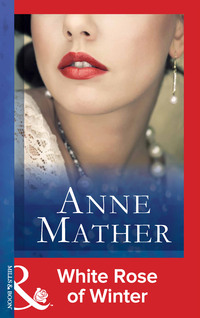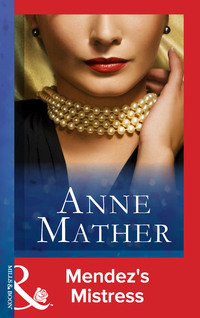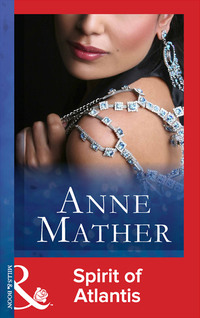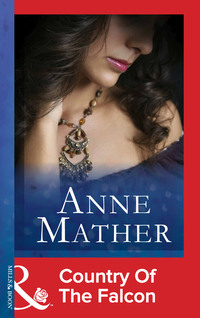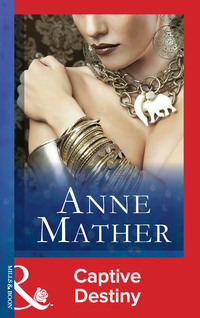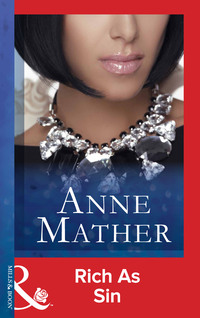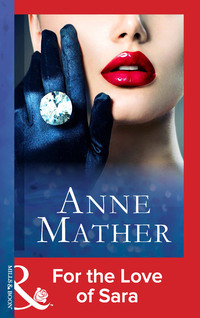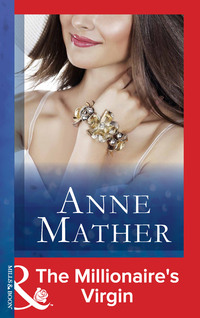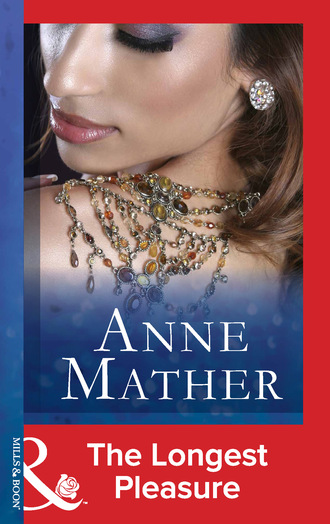
Полная версия
The Longest Pleasure
Helen’s shoulders sagged. ‘All right.’ She paused, and then added: ‘Do you want to come for supper? It can only be steak and salad, I’m afraid, but you could bring a bottle of wine.’
‘I know just the one,’ declared Adam at once, his good humour quickly restored. It was one of the things that had first attracted her to him: his unruffled temperament and buoyant personality. ‘How does six-thirty sound?’ he suggested. ‘Too early? Or too late?’
It was earlier than she had anticipated, but bearing in mind the fact that she intended he should leave earlier, too, she did not demur. But then another thought struck her. ‘The recital!’ she exclaimed. ‘What about the tickets?’
‘I can listen to Vivaldi any time,’ Adam assured her carelessly, dismissing her concern about the performance. ‘See you in a couple of hours, my sweet. I’m looking forward to it.’
He rang off, but Helen replaced her receiver with rather less enthusiasm. It was sweet of Adam to want to show her how much she meant to him, of course, but for once she wished he had been more perceptive. She would have preferred to be alone this evening. She didn’t feel like talking, or stirring herself to make a meal for the two of them. All she really wanted to do was have a bath and go to bed, and try to forget that the woman who had been the only mother she had ever known had died that morning, alone and unloved.
By the time Adam arrived, however, Helen was feeling distinctly more relaxed. A long, lazy bath, followed by another Scotch—this time with soda—had done much to ease her introspection, and although she had spent little time over her appearance, she was reasonably sure Adam would not be disappointed.
Maturity—and the hectic life she led—had succeeded in banishing any lingering doubts she might have nurtured over her face and figure. The breasts she had once fretted over were now full and rounded, accentuating her narrow waist and the long, seductive length of her legs. Her face, while not being conventionally pretty, was nonetheless striking for all that, her wide almost purple eyes fringed by silky black lashes. A narrow nose, high cheekbones, and a generous mouth, completed features with the delicacy of colour of a magnolia, but it was the glorious abundance of her hair that she was sure caused her a second glance. It was still as dark and lustrous as it had ever been, and in spite of the ups and downs of fashion, she always wore it long and coiled into a knot at the nape of her neck. She still plaited it from time to time, allowing the thick chunky braid to hang over one shoulder. But as she seldom liked to be reminded of the naive girl she used to be, she usually chose a style with less significance.
When she opened the door to her fiancé, however, her cheeks were still flushed from her bath—and the amount of alcohol she had consumed. The unusual colour gave her face a feverish fragility, and Adam’s eyes darkened appreciatively as he reached for her. But for once, Helen evaded his embrace, averting her face so that his mouth merely grazed the warm skin of her temple.
‘Are you all right?’ he asked, and she thought, rather guiltily, it was a measure of his concern for her that he showed no impatience at her withdrawal. She must have hurt him, and yet his refined handsome features revealed only sympathy and compassion. She wished she could confide in him. She wished she could tell him how she was feeling. She wanted to be totally honest with him. But something—some awful flaw in her character perhaps—prevented her from explaining the real reasons why she and her grandmother had lost touch with one another.
‘I’m just—tired,’ she said now, leading the way down the shallow carpeted stairs into the centre of the living room. ‘It’s been quite a day. But then, you know that.’
‘Yes.’ Adam followed her, taking off the camel-hair overcoat he was wearing over a tweed suit, and dropping it on to a low padded stool. ‘Poor Helen! It must have been quite traumatic. Didn’t anyone warn you the old girl was ill?’
‘I don’t know that she was,’ replied Helen shortly, feeling her tension coming back in spite of herself. Shrugging, she curled her silk-trousered legs beneath her and sank into the corner of one of the suede sofas. ‘I told you. I got a telegram to say she was dead. That’s all I know about it.’
Adam frowned, taking up a position in front of a carved cabinet. ‘You mean—you haven’t phoned?’ he exclaimed in surprise. He shook his head. ‘I assumed you would.’
‘No.’ Helen bent her head and then, remembering her manners, she added swiftly: ‘Help yourself to a drink. I’m sure you must be frozen.’
‘Well, it is damn cold out tonight,’ agreed Adam, taking her at her word and turning to the tray. ‘But I managed to park in the square, so it wasn’t too far to walk. I shouldn’t be surprised if we have snow before morning.’
‘I hope not.’ Helen spoke automatically, but she meant it. She didn’t want to have to take the train to Yelversley. With her own car, she was so much more independent.
‘You’re driving down then,’ Adam remarked, taking a mouthful of the Scotch he had poured before coming to join her on the sofa. ‘You will drive carefully, won’t you, darling? The M3 is so frantic!’
‘I’ll be careful,’ said Helen, with a tight smile, wondering what he was really thinking. He hadn’t questioned her decision not to phone, yet he must be curious as to why she wouldn’t have done so. Perhaps if Adam had been more inquisitive, she would have found it easier to be entirely honest with him, she consoled herself uneasily. As it was, he allowed her to direct the conversation, and it was so much simpler not to have to explain.
‘I thought we’d eat about seven o’clock,’ she said now, changing the subject completely, and Adam groaned.
‘Dammit, I’ve left the wine in the car!’ he exclaimed, pressing the heel of his hand against his forehead. ‘That’s what comes of being too eager. I’ll have to go and get it.’
‘It doesn’t matter,’ said Helen at once. ‘As a matter of fact, I’d just as soon have water. I’ve got a bit of a headache.’
‘From the whisky, no doubt,’ remarked Adam drily, and Helen’s eyes darted to his face. ‘I smelt it,’ he added. ‘As soon as I came in. I guess the old lady’s death meant more to you than I thought.’
That was a bit too close to the truth for comfort and, uncoiling herself, Helen rose to her feet. ‘You could be right,’ she declared, purposely keeping her tone light. And then, making for the door, she added: ‘I must check on the steaks. They should have defrosted by now.’
Adam came into the kitchen as she was spreading the thick slices of meat under the grill. It wasn’t a large kitchen, used primarily by Mrs Argyll, Helen’s daily. Because she was out a lot of the time, Helen didn’t employ a full-time housekeeper, but the friendly little Scotswoman could turn her hand to anything. If she knew her employer was to be home for the evening, she generally left a casserole in the oven, or a cold meal that could be easily heated in the microwave oven. But this evening she had expected Helen to be out, and Helen would have to explain why two healthy steaks had disappeared from the freezer.
‘Something smells good,’ Adam observed now, perching his fastidious frame on one of the leather-topped stools beside the breakfast bar. ‘At least we’ll never starve after we’re married.’
‘Cooking steaks and tossing a salad are hardly culinary feats,’ responded Helen wryly, glad he was not pursuing his earlier topic. ‘You’re a much better cook than I am, and you know it.’
‘More inventive, perhaps,’ Adam conceded, taking another swallow from his glass. And then, just as she was about to make some teasing comment, he added: ‘Tell me: this affair of your grandmother; it won’t make any difference to our plans, will it? I mean, you won’t have any qualms about selling the estate?’
Helen stiffened. ‘Selling the estate?’ she echoed faintly. And then, more staunchly: ‘Why should I sell the estate? It was my home.’
‘Was, darling. Was being the operative word,’ said Adam smoothly. ‘And let’s face it, it’s years since you lived there. Almost ten, isn’t it?’
‘Seven,’ said Helen tightly. ‘I left when I was eighteen. You know that.’
‘All right. Seven, then.’ Adam finished his drink, cradling the glass between his palms. ‘But for the past—I don’t know how many years; at least as long as I’ve known you—you haven’t even visited your grandmother, let alone cared about the estate!’
Helen expelled her breath unsteadily. ‘I know.’
‘So …’ Adam spread his hands. ‘You must see that selling the place is the most sensible solution. If death duties don’t take the decision out of your hands, that is.’
‘Death duties!’ Helen stared at him. ‘Is that likely?’
‘Well, I don’t know the old lady’s financial situation, do I, so I can’t say.’ Adam shrugged. ‘But unless she had considerable private funds, I’d say it was possible.’
‘Private funds?’ Helen’s stomach hollowed. She had no idea if her grandmother had had a private income. Lady Elizabeth had never seemed short of money, but she had not wasted it either. And as long as Helen could remember, she had always lived in only one wing of the house.
‘Don’t look so shocked, love.’ Adam dropped his glass on to the bar’s leather counter and came round to her. ‘You must have given some thought to what this would mean. Is it so important to you?’
Helen quivered. If anyone had asked her that question yesterday, she would have said no, but now it was different. For some unfathomable reason, the idea of selling Castle Howarth was like the final betrayal of all Lady Elizabeth had meant to her. She would not have wanted her to sell it, and if there was any other way, she had to find it.
Torn by emotions suddenly too strong to resist, she let Adam pull her into his arms. For the first time since hearing the news that afternoon, she felt the hot sting of tears against her cheeks. Nan was dead; she acknowledged it bitterly. She would never speak to her again. Never sit with her, and talk with her, and share with her all the thousand-and-one things they used to share when she was a child. How had it all gone so wrong, she wondered. At what point had their relationship begun its downward slide? What had happened in the years between that she should be blaming herself now, because the old lady had died without her being there?
‘Hey…’ Adam’s hand beneath her chin caused her to try and take a grip on her emotions. ‘If it means that much to you, we’ll keep it; whatever it costs.’ He bestowed a tender kiss at the corner of her mouth and smiled a gentle smile. ‘Come on. This isn’t like you.’
It wasn’t, Helen knew. She was not an emotional person. Oh, she got angry from time to time, just like anyone else, but it was years since she had cried—about anything. Adam always said he liked her cool competent way of dealing with things, and it must be quite a surprise for him to discover she was so vulnerable. But grief was not like other emotions, she decided. And until today she had not realised how painful it could be.
The sound of the telephone solved both their problems: Adam’s because he wasn’t entirely sure how to deal with her; and Helen’s because she was glad of an excuse to escape from his embrace. Tonight she felt in no mood for Adam’s lovemaking. Her affection for him had not changed; it was simply that the present situation had left her bereft of feeling. She needed time to absorb this new development. Time to come to terms with the way it would affect both their lives.
Smudging her cheeks with the back of her hand, she lifted the kitchen extension from its hook and put the receiver to her ear. ‘Yes?’
‘Helen?’
The voice was unmistakable and to her dismay Helen felt a wave of colour sweep up her cheeks. Hoping Adam would assume it was the result of her emotional upheaval, she nevertheless turned her back on him to make her response. ‘Yes,’ she said tautly. ‘This is Helen Michaels. To whom am I speaking?’
‘Don’t you know?’ the sardonic voice rasped in her ear. ‘All right,’ as she made no attempt to answer, he conceded, ‘Fleming here. Did you get my message?’
‘That my grandmother is dead? Yes, thank you.’ Her voice was clipped and brittle. ‘Is that why you rang? To make sure I heard the news from you?’
There was a moment’s silence, and she thought for one anxious second he had rung off. But then, with studied insolence, he responded: ‘How or from whom you heard the news doesn’t interest me. I simply wanted to know if you intend coming to the funeral. The weather’s getting pretty bad down here, and I’d hate for you to make it a double event!’
‘You——’ The epithet was inaudible. Helen was suddenly intensely conscious of Adam, propped against the drainer behind her, listening to every word. ‘I—of course, I’m coming to the funeral. I shall drive down in the morning. There are—arrangements to be made.’
‘I’ve made them,’ retorted Rafe laconically. ‘When you didn’t ring I assumed you were leaving them to me.’
‘Then you had no right to——’ Once again, Helen broke off, biting her tongue. ‘That is, if I’d learned of my grandmother’s death sooner——’
‘Sooner?’ Rafe sounded incredulous. ‘I rang you as soon as I could. It wasn’t my fault you weren’t at either of the addresses I found in the old lady’s bureau.’
‘You looked in—in Nan’s bureau!’ Helen was incensed. ‘How—how dare you?’
‘How else was I supposed to find you?’ he retorted flatly. And then: ‘Anyway, I didn’t make this call to get into an argument over the rights and wrongs of how I found you! The old lady’s dead, for God’s sake! Doesn’t that mean anything to you?’
‘Of—of course it means something to me.’ Helen was furious to hear the tremor in her voice. ‘But—I just don’t understand why you didn’t reach me. I’ve been either here or at the shop all day. At least——’
She broke off again, remembering with despair the hour she had spent in the reference library before going to the shop. She caught her lower lip between her teeth. ‘You must have spoken to Melanie then.’ So why hadn’t she told her?
‘I spoke to some old guy who said you were both out,’ declared Rafe wearily. ‘I was going to ring you back, but I just didn’t have the time. It’s been pretty hectic here, one way and another. Paget sent the telegram.’
‘Miss Paget?’ echoed Helen faintly, and Rafe swore.
‘Yes,’ he said, impatient now. ‘Well, I guess that’s——’
‘Wait!’ Glancing anxiously at the steaks, which were starting to spit under the grill, Helen moistened her lips. ‘I—can you tell me how it happened? I mean——’she chose her words with care ‘—had she been ill?’
‘I’m tempted not to answer that question,’ responded Rafe harshly. ‘You should know.’
Helen quivered, her knuckles white as they gripped the receiver. ‘Rafe, please——’ She despised herself for begging, but she suspected she wouldn’t get much sleep until she knew the truth.
There was another ominous silence, and then he made a derisive sound. ‘No,’ he said, after a moment. ‘She seemed perfectly all right yesterday evening. Your conscience needn’t trouble you. Not on that score at least.’
Helen replaced the receiver without answering him. Uncaring at that moment what Adam might think of her behaviour, she moved almost automatically towards the grill, pulling out the pan and flipping the steaks over. She needed the reassurance of accomplishing so familiar a task to give her time to recover from Rafe’s attack, but even so her hands shook abominably.
Adam let her attend to the steaks without comment, but when she moved towards the fridge to take out the salad, his voice arrested her. ‘I assume that was a call from Wiltshire,’ he remarked quietly. ‘Is something wrong? You seem—distraite.’
Summoning all her composure, Helen took a deep breath before turning to face him. ‘I’m just—in shock, I suppose,’ she murmured, hoping he would not probe. ‘That—that was my grandmother’s agent. I’m afraid he and I have never seen eye to eye.’
‘Ah.’ Adam inclined his head. ‘Well—I shouldn’t let anything some old peasant says upset you. You know what these rustic types are like. Unless you keep them in order, they get an inflated idea of their own importance. And they’re so used to dealing with pigs, they begin to sound like one!’
The graphic portrait Adam described brought the ghost of a smile to Helen’s lips. The image of Rafe as some hoary old farmer, deep in pig-swill and manure, with brutish features and a straw dangling from his mouth, was so far from the truth as to be laughable. But she didn’t contradict him. The chances of the two men ever actually meeting one another were negligible, and Rafe’s behaviour had only reinforced her determination to get rid of him as soon as possible.
‘That’s better,’ said Adam now, seeing her smile. ‘Come on, darling. It’s not the end of the world. Oh, I know it’s a shame that the old lady died so suddenly. But isn’t it better? From her point of view, at least? You wouldn’t have wanted her to be in pain.’
‘No.’ Helen felt an involuntary shiver prickle her spine. But Adam was right. Nan could not have suffered for long. With a determination born of desperation, she put all thoughts of her grandmother—and Rafe Fleming—aside. ‘You know,’ she added, ‘I think I would like that bottle of wine after all. Would you mind?’
CHAPTER TWO
AT TWO o’clock Helen gave up the struggle to try and sleep, and got out of bed. Pulling on a beige silk wrapper over the lacy folds of her nightgown, she padded out of her bedroom and into the kitchen. Switching on the light, she opened the fridge and took out a pint of milk. Then, taking down a copper-bottomed pan from the rack above the drainer, she poured half the milk into it.
A few moments later she trailed into the living room carrying an earthenware mug of hot milk. It was chilly in the large room, the heating having been turned down before she went to bed. Helen adjusted the thermostat before crossing to the windows to draw back the heavy curtains, and then sank down into an armchair close by. Whenever she couldn’t sleep, she always opened the curtains. It was so reassuring to know that other people were not sleeping either.
Far below her, London still breathed, like a beast reclining after making its kill, she thought fancifully. Yet, to someone unused to its wakeful vigilance, the fairylike brilliance of its lights must have seemed an alien phenomenon. For herself, she was used to it. Seven years of living in the capital had given her a sense of identity with its busy streets, though she still remembered the peace of Castle Howarth with a nostalgia undiminished by time.
Castle Howarth! Her tongue appeared to lick a smear of milk from her lips, and she felt the same constriction in her throat she had fought earlier. It was just as well Adam couldn’t see her now, she reflected wryly. He had thought she was over the worst, and so had she. But she wasn’t. The inescapable fact that her grandmother was dead was the reason she was sitting here now. She would get over it; eventually. But not without some heart-searching; not without some remorse.
Adam didn’t understand, she knew that. His was a logical brain, to which an excess of emotion was self-indulgent. He couldn’t conceive why she should be so distressed over the death of an old lady she had seen only a handful of times in the last three years. Helen shook her head. Undoubtedly, he had a point. It was self-indulgent and hypocritical to display such grief when she had done so little to warrant it. As far as Adam was concerned, she was behaving illogically—and just a little egotistically—expecting him to comprehend her feelings when they were so uncharacteristic of the young woman he thought he knew.
The evening had not been a success. In spite of the heady bottle of claret Adam had produced, Helen’s behaviour had thrown them both off-key, and she was relieved when he agreed she should still have the early night she had planned. Even so, he had made one final offer to go with her, and her taut refusal had not repaired the situation.
‘I think you’re allowing this whole affair to assume unreasonable importance,’ he said, after observing his fiancée’s attempt to swallow a mouthful of her steak. ‘I’m trying to be patient, Helen, but I honestly don’t understand why you’re so upset. I assume you must be blaming yourself in some way, though how you can be held responsible for the death of someone who, on your own admission, was almost eighty, is beyond me!’
Helen had not tried to reason with him. She had suspected that any attempt on her part to try and explain would have resulted in exactly the kind of scene Adam would most deplore. So, until she had regained control of her wayward emotions, she was unable to offer any defence.
The hot milk was cloying and, putting it aside, Helen lay back in her chair. It was snowing now, she saw with some surprise—tiny frozen flakes floating past the windows, covering the roofs below with a thin crust of white icing. It reminded her of Rafe’s warning about the weather at Castle Howarth. It was always worse in the country. Without the frequent movement of traffic to keep the roads clear, whole villages were soon cut off, and Castle Howarth was no exception. She ought to have watched the forecast on television, she thought ruefully. She had no desire to be diverted into a snow-drift.
They had always had a lot of snow at Castle Howarth, she remembered wistfully. When she was young she had loved the cold frosty mornings, when her fingers tingled and the snow had been deep enough to cover her rubber boots. Sometimes the pond had frozen, and if Mr Dobkins had pronounced it thick enough, Nan had let her go skating. Nan! Helen’s breath caught in her throat. Oh, Nan, she thought miserably, why had their relationship floundered? After all they had meant to one another, how could such a thing have happened? They had been so close. The only surviving members of a family stricken by bad luck and misfortune. They should have fought for what they had.
Sometimes, she wondered if it had not begun when she was four years old. That first occasion when she had learned of Rafe Fleming’s special place in her grandmother’s affections. Had she really been hurt—or jealous—of Nan’s stand over Rafe’s rights? Hadn’t she secretly resented her grandparent’s defence of someone she considered her inferior? What an abominable little prig she must have been, she thought with disgust. But Rafe Fleming had always brought out the worst in her.
She sighed. She probably brought out the worst in him, too. Certainly, when she was fifteen, she had done little to warrant the unprovoked assault he had made on her, and it had taken years for her to recover from that particular anguish. What had made it worse was that she had been too ashamed to tell her grandmother. Rafe had expected her to, she knew. She had been aware of his wary eyes watching her on more than one occasion. But it was something she could not share with anyone, and unconsciously she blamed Nan for it.
Of course, after Rafe had gone away to work, it had been easier. Outwardly, at least, her life had gone on as before. But there was something missing; the innocent faith she had had that Nan could protect her from any danger was gone, and in that realisation had been sown the first seeds of dissension.
She knew it had been because of Rafe that she had insisted on striking out on her own. His accusations, however unfounded, had soured and festered, and as soon as she was eighteen, she had announced her intention to get a job. But not in the village, or even in the nearby town of Yelversley: Helen proposed to go to London, and nothing could dissuade her.
Not unnaturally, her grandmother had not wanted her to leave. There was no reason for her to take a job, she said. There was plenty to do at Castle Howarth. Not least, be a companion to her, she suggested. Now that Paget was getting old, she needed someone younger to handle her correspondence. But Paget—Miss Paget, of Helen’s pre-school days—had stayed on long after her young charge had need of her. She and Lady Elizabeth got along together very well, and even had she wanted to, Helen knew she could never replace her.


